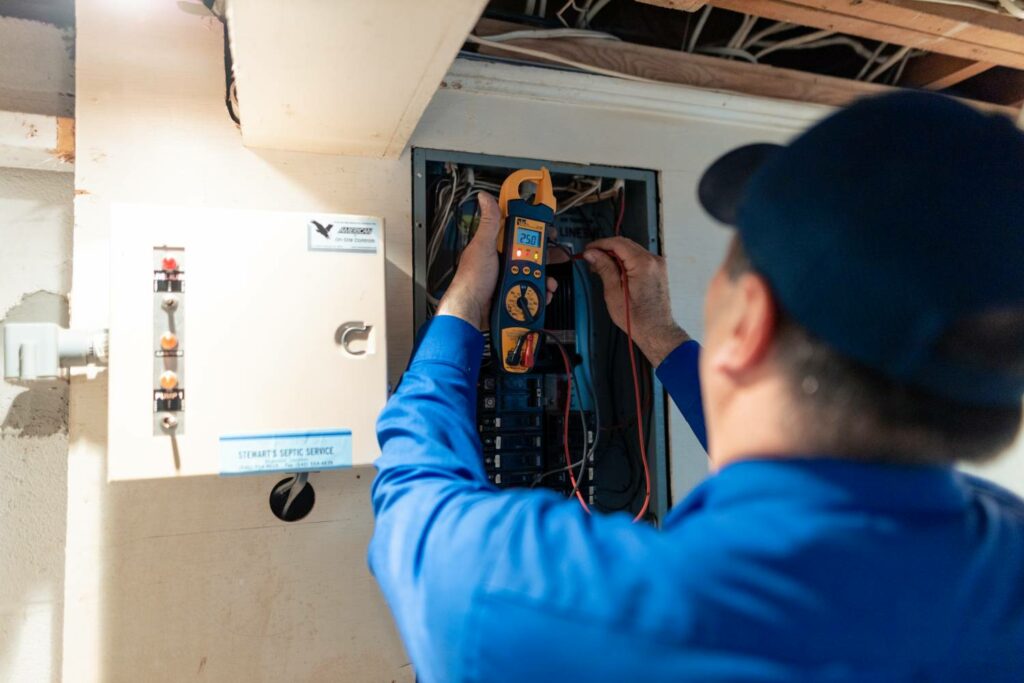Electricity is an integral part of our modern lives, powering our homes, workplaces, and countless devices. While it has made our lives more convenient, electricity can also be hazardous if not used and managed safely. Electrical accidents can lead to severe injuries, fires, and even fatalities. In this blog, we will delve into the importance of electrical safety precautions and why they should never be taken lightly.
1. Preventing Electrical Accidents
Electrical accidents can have devastating consequences. They can result in severe burns, electric shock, electrocution, or even death. The importance of electrical safety precautions cannot be overstated when it comes to preventing such accidents.
Common electrical safety measures include:
- Avoid overloading electrical circuits and outlets.
- Keeping electrical cords and equipment in good condition.
- Using Ground Fault Circuit Interrupters (GFCIs) in areas with water exposure.
- Installing arc-fault circuit interrupters (AFCIs) to prevent electrical fires.
- Regularly inspecting and maintaining electrical systems and appliances.
By following these precautions, you can significantly reduce the risk of electrical accidents in your home or workplace.
2. Minimizing Fire Hazards
Electrical fires are a significant concern. Faulty wiring, overloaded circuits, and damaged appliances can all contribute to electrical fires. These fires can spread rapidly and cause extensive damage to property and life.
To minimize fire hazards, it is essential to:
- Avoid overloading electrical outlets and circuits.
- Replace frayed or damaged electrical cords and plugs promptly.
- Ensure that electrical work is performed by qualified professionals.
- Install smoke detectors and test them regularly.
Taking these precautions can help protect your property and loved ones from the devastating effects of electrical fires.
3. Safeguarding Children and Pets
Children and pets are naturally curious, and electrical outlets, cords, and appliances can be tempting targets for exploration. Electrical shocks and burns are common among children and pets who come into contact with unprotected electrical sources.
To safeguard your little ones and furry friends, consider:
- Using outlet covers or safety caps to prevent access to electrical outlets.
- Keeping cords out of reach and using cord organizers.
- Teaching children about the dangers of electricity and how to use it safely.
Educating your family members about electrical safety and implementing protective measures can prevent accidents and injuries.
4. Protecting Your Home from Electrical Surges
Electrical surges, whether from lightning strikes or power grid issues, can damage electronic devices and appliances. Surge protectors are essential for safeguarding your valuable equipment from voltage spikes.
To protect your home and electronic devices:
- Install surge protectors on electrical outlets and power strips.
- Consider whole-house surge protection systems for added security.
- Unplug electronic devices during storms or when not in use for extended periods.
By taking these precautions, you can save yourself the cost and inconvenience of replacing expensive electronics damaged by electrical surges.
5. Ensuring Workplace Safety
Workplace electrical safety is critical to prevent accidents and maintain productivity. Employees should receive training on safe electrical practices and be aware of potential hazards in the workplace.
Employers can help by:
- Ensuring that electrical equipment and wiring comply with safety standards.
- Conducting regular safety inspections and maintenance.
- Providing appropriate personal protective equipment (PPE) for employees working with electricity.
Creating a culture of safety in the workplace promotes the well-being of employees and reduces the risk of electrical accidents.
6. Complying with Electrical Codes and Regulations
Local and national electrical codes and regulations exist to ensure the safety of electrical systems in homes and businesses. Compliance with these codes is not only a legal requirement but also essential for the safety of occupants.
Some key aspects of electrical code compliance include the following:
- Proper installation and grounding of electrical systems.
- Use of appropriate wiring and circuit protection devices.
- Regular inspections and maintenance are necessary to ensure ongoing compliance.
Failing to adhere to electrical codes can result in unsafe conditions, fines, and even legal consequences. It is crucial to hire qualified professionals who are knowledgeable about these codes to ensure your electrical systems meet the necessary standards.
Conclusion
Electrical safety precautions are not optional; they are a vital part of responsible living and working. Electrical accidents can lead to injuries, fires, and property damage, making it crucial to prioritize safety in all aspects of life.
Whether at home or in the workplace, electrical safety should always be a top priority. By preventing electrical accidents, minimizing fire hazards, safeguarding children and pets, protecting against electrical surges, ensuring workplace safety, and complying with electrical codes, we can all contribute to a safer and more secure environment.
Remember, when it comes to electrical work, it is essential to rely on qualified professionals who have the knowledge and expertise to ensure the safety of your electrical systems. In the end, investing in electrical safety precautions is an investment in the well-being of yourself, your loved ones, and your property.
Oakland Electrician https://www.electricianoakland-ca.com/
